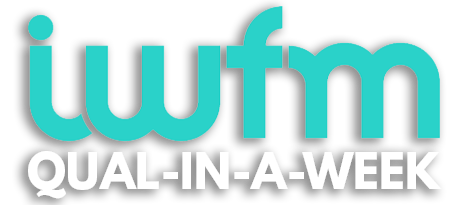Hi there,
After a bank holiday hiatus (the downside of sending out e-mails on a Monday!), we’re back!
Following our last session on the advantages of outsourcing FM services, this week we’ll be looking at things from the other side of the coin and focusing on the disadvantages.
Outsourcing any service has it’s pros and cons, and Facilities Management is no different. Deciding whether or not to outsource will depend on your organisation, its current setup, its budgets etc.
That’s why we need to look at both the advantages and disadvantages of FM outsourcing so you can make an informed decision.
New website update: barring any technical issues, our new website will be up and running within the next 2 weeks. Close behind will be a back catalogue of all of the e-mails we’ve been sending out since we started at the beginning of this year, so if you’re a new subscriber, missed an issue or you want to quickly refer back, you’ll be able to find everything in one place.
The disadvantages of outsourced Facilities Management
As with any option, there are disadvantages to outsourcing facilities management services which we will consider today. You should remember that if the disadvantages outweigh the advantages then the decision to outsource should be considered very carefully.
Loss of Managerial Control
Whether you sign a contract to have another company perform the function of an entire department or single task, you are turning the management and control of that function over to another company.
True, you will have a contract, but the managerial control will belong to another company.
Your outsourcing company will not be driven by the same standards and mission that drives your organsation. They will be driven to make a profit from the services that they are providing to you and other businesses like yours.
Hidden Costs
You will sign a contract with the outsourcing company that will cover the details of the service that they will be providing. Anything not covered in the contract will be the basis for you to pay additional charges.
You need to carefully consider what is included in the contract and ensure that you have covered any tasks and services that need to be regularly performed.
There will likely always be some additional costs to cover unexpected or irregular activities, but these need to be minimised by creating a thorough specification for the services you require at the outset of the outsourcing exercise.
Threat to security and confidentiality
The life-blood of any business is the information that keeps it running. Payroll, medical records or any other confidential information that will be transmitted to the outsourcing company, presents a risk that the confidentiality may be compromised.
If the outsourced function involves sharing proprietary company data or knowledge (e.g. product drawings, formulas, etc.), this must be taken into account. It is vital that the contract details the need for confidentiality and the penalties for any breaches.
Quality problems
The outsourcing company will likely be primarily motivated by profit. Since the contract will fix the price, the only way for them to increase profit will be to decrease expenses. As long as they meet the conditions of the contract, you will pay.
In addition, you will lose the ability to rapidly respond to changes in the business environment. The contract will likely be very specific and you will pay extra for changes.
Tied to the financial well-being of another organisation
Since part of the operations of your organisation will be turned over to another company, you will now be tied to the financial well-being of that company. If an outsourcing company were to go bankrupt, you will be left holding-the-bag.
There have been some very high profile examples of this in recent history – Interserve and Carillion were both seen as leading players in the FM market, but both went into administration, showing that no company is too big to fail.
Carrying out thorough due diligence on any potential suppliers before entering a contract can help to mitigate this risk, but you also need to consider a backup plan as part of any business continuity planning that you undertake.
Bad publicity and ill-will
Outsourcing can be a controversial move, particularly amongst front line staff who will be understandably concerned about the changes to their working arrangements.
If you outsource your services the staff that you did originally employ to provide the services will be transferred to the new company under Employment legislation – TUPE, the Transfer of Undertakings (Protection of Employment) Regulations.
The same staff may be working for you but employed by the other organisation.
This can create a feeling of bad will and the apparent loss of jobs can create bad publicity for your organisation. This risk can be particularly acute in unionised environments, where the prospect of organised resistance to your actions is much stronger.
If you take the decision to outsource services, you’ll need to diligently craft a communications plan and work hard to ensure that any TUPE’d staff are bought in to the idea in order to minimise concerns and any consequent disruption.
That’s all for now!
That just about wraps up our coverage of the pros and cons of FM outsourcing in general. Next week we’re going to take a closer look at the different types of outsourcing models (single services, bundled services, TFM etc.) and some of the specific nuances of each.
Hopefully by the end of this series, you’ll be better placed to make informed decisions on whether outsourcing some or all of your FM services is the right decision for you (or, if you’ve already outsourced your services, you may even consider whether it’s worth bringing them back in-house!).
In the meantime, if you can think of any further advantages or disadvantages to outsourcing, we’d love to hear from you so we can share with the rest of our subscribers. Simply reply to this e-mail with your ideas.
For now, have a great week!
Chris and the Xenon Team
P.S. If you haven’t already studied or started studying for an IWFM qualification, which will cover topics like this in depth and fully assess your understanding, you may want to have a look at our guide to the IWFM Qualifications which will give you a full breakdown of how they work and what’s involved in the different levels. You can download it here.
P.P.S. If you’re already considering taking a qualification but don’t know which level to go for, a good starting point is our One-Minute-Leveller tool, which will ask you a few questions and give you a recommendation based on the result. You can access it here.



